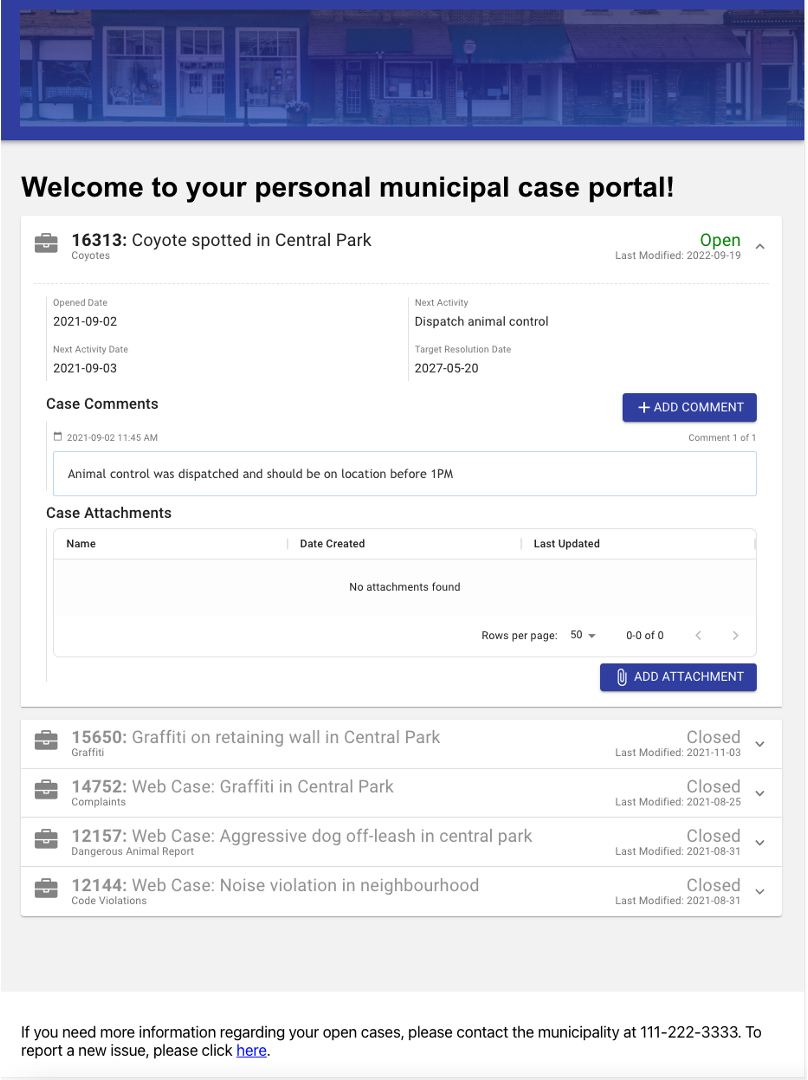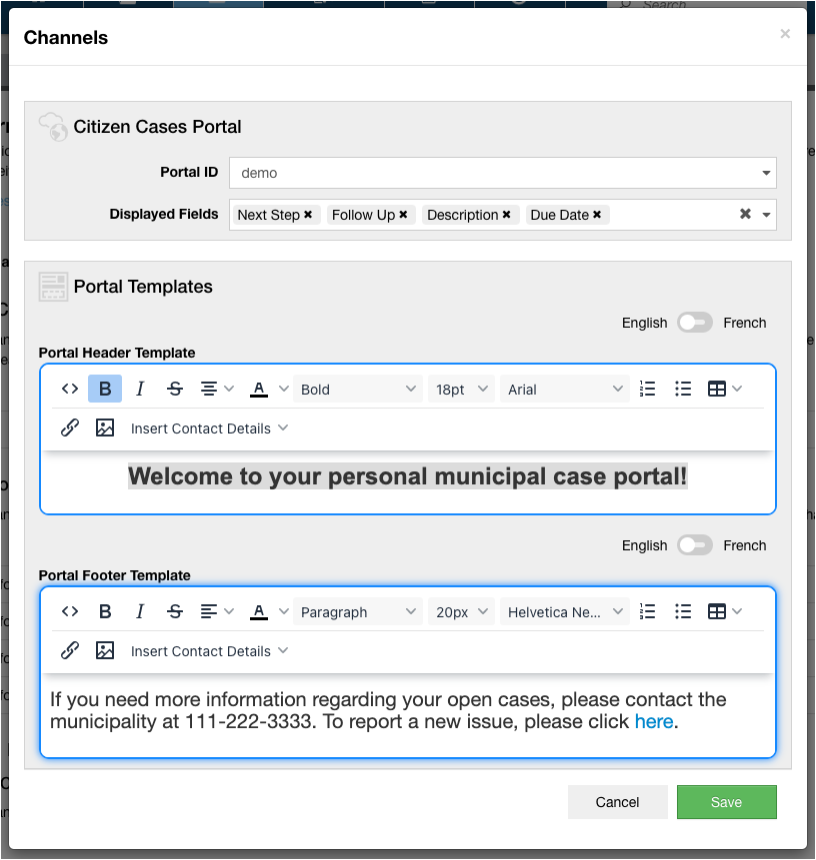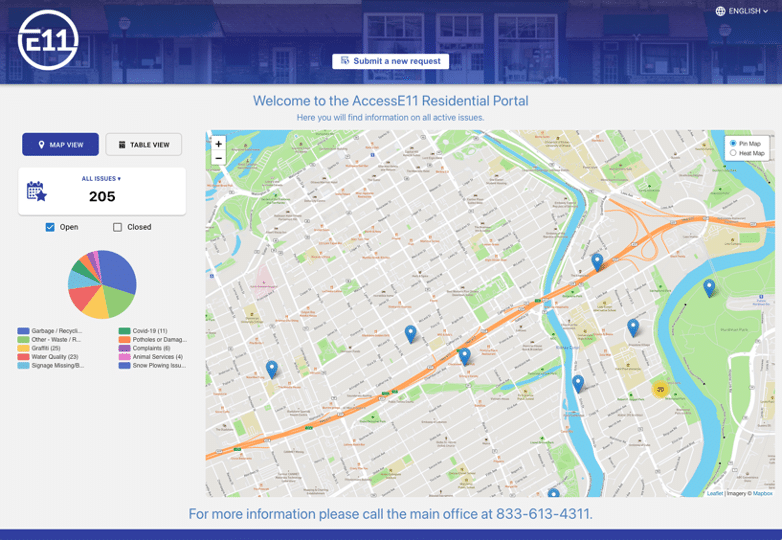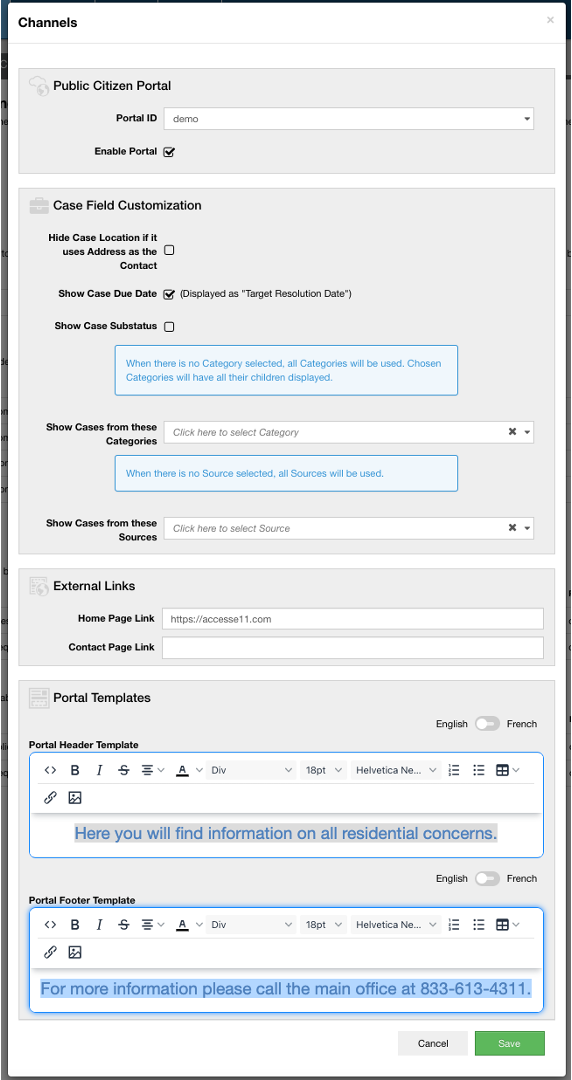Search Knowledge Base
Public Portals
Citizen Portals
In addition to web forms for receiving service requests, AccessE11 offers two additional online options for keeping citizens informed and engaged in the service management process.
Citizen Case Portal
When citizens make the effort to report a concern, it is critical to keep them informed as action is taken by municipal staff to resolve the issue. Doing so results in better information to work with, higher citizen satisfaction, and increased likelihood that these same citizens will want to be part of ongoing efforts to improve service and the community they live in.
When a citizen reports and issue using AccessE11, they have access to a personalized portal for the service requests they have submitted. This portal can be aligned with your on-line brand and configured to control the type of information your citizens will see. Along with their own comments, citizens will only see comments specifically marked as “public” by municipal staff. They can also add additional updates or attachments to enrich the case details and further support resolution.

Configuring the Citizen Case Portal
The Citizen Case Portal is an optional module that requires some initial set-up by AccessE11. Once this is complete, navigate to Case Work > Case Office Administration > Channels. Then select the “+” create channel icon in the Channels form, and select Portal to configure a new portal instance.

Alternatively, if you wish to edit an existing portal instance, select the edit (pencil) icon for the entry in the Citizen Cases Portal table.

In either case, you will be presented with a configuration screen where you can:
- Select from a list of pre-configured Portal IDs
- Choose which of the case details to make visible in the portal. Available options include Description, Next Step, Follow-Up date, and Due Date,
- Use the embedded WYSIWYG editor to create and format the portal header and footer.

Once set-up, the automated Contact emails on case creation and public note updates will contain a unique link to the Portal where the citizen can view and update the case details.
Public Citizen Portal
AccessE11 also offers a Public Citizen Portal where the general public can find information on all active issues within the community. Similar to the Web Form and Citizen Case Portal, this can be customized to match your branding needs, and can be easily linked to your municipal website.

Configuring the Public Citizen Portal
The Public Citizen Portal is an optional module that requires some initial set-up by AccessE11. Once this is complete, navigate to Case Work > Case Office Administration > Channels. Then select the “+” create channel icon in the Channels form, and select Public Portal to configure a new portal instance.

Alternatively, if you wish to edit an existing portal instance, select the edit (pencil) icon for the entry in the Public Citizen Portal table.

In either case, you will be presented with a configuration screen where you can:
- Select from a list of pre-configured Portal IDs
- Enable/Disable the portal
- Control how Case information is shared publicly
- Choose whether to hide location details if this is the reporting citizen’s adddress
- Show target resolution dates
- Show case substatus in addition to open or closed
- Choose which Case categories to include in the public portal
- Choose which intake sources to include in the public portal
- Configure the links to redirect citizens to your main web site or contact information
- Use the embedded WYSIWYG editor to create and format the portal header and footer.

For their part, the residents of your community get real-time visibility into the specific issues/concerns that are actively being worked using pin and heat maps, or in a table containing the types of information you have chosen to make available. They are able to quickly drill in to a specific category of interest, a specific time period, and choose whether to include resolved issues or not. This makes it easier to keep Citizens informed about the work that is being done, and also serves to reduce duplicate issue reports and unnecessary calls to staff.
